My Kid is Being Bullied
It’s important for kids to know that they can go to their parents if they’re being bullied. But, sometimes kids are embarrassed or scared to tell their parents what’s going on. Here are some strategies to help if you think that your child is being bullied:
- Ask your child what’s happening, and make it clear that you support him or her and want to help.
- Listen to their problem without interrupting. Reassure them that bullying is a difficult problem and that they are not alone.
- Ask them what kind of help they need. Sometimes, just sharing a problem can help a child figure out what to do. Offer suggestions and role-play ways to respond to the bullying.
- If there’s an ongoing bullying problem, contact your child’s teacher or school counselor.
- Remember, parents don’t always have all the answers. You can find caring adults to help you and your child at school, in your neighborhood or faith community, or through medical and counseling resources.
My Kid Might Be a Bully
It can be hard to hear that your child might be bullying others, but it’s important to take it seriously. Kids who show bullying behaviors are at risk for other dangerous behaviors like vandalism, shoplifting, and using drugs or alcohol.
Here are some strategies if your child is or might be bullying others:
- Ask your child what happened, and listen carefully without interrupting.
- Help your child identify the emotions he or she felt both before and during the incident.
- Help your child brainstorm what they can do differently next time.
- Make it clear that bullying behaviors are unacceptable and will not be tolerated in your family. Create clear and consistent rules and consequences for behavior.
- Model and help your child practice dealing with powerful emotions like frustration, anxiety and anger. Compliment them on positive behaviors.
- Talk about ways to use friendship skills to build positive relationships with others.
- Enlist the help of other caring adults in your child’s life to help model and reinforce appropriate behaviors.
- Contact your school to discuss a plan to provide positive support for your child’s behavior changes at school.
- PACER’s information sheet What If Your Child is the Bully? offer step-by-step guidance for addressing bullying behaviors.
Teach Your Kids to be an UPstander to Bullying
Empowering bystanders to be UPstanders is about bridging the gap between what children know is right and what they actually do. Kids who know how to stand up to bullying are empowered to make a difference. Share and role-model these strategies for being an UPstander instead of a bystander when bullying occurs:
- Refuse to join in with bullying behaviors.
- If you feel safe, use your influence as a positive peer role model to tell the bully to stop and offer some other things to do instead.
- Support bullying targets by standing next to them or helping them walk away.
- Always get an adult if there is violence or a weapon!
Sometimes, your child may feel too scared to directly help someone who’s being bullied. If that happens, she or he can still help the target by talking to a caring adult like a parent, teacher or neighbor about bullying.
